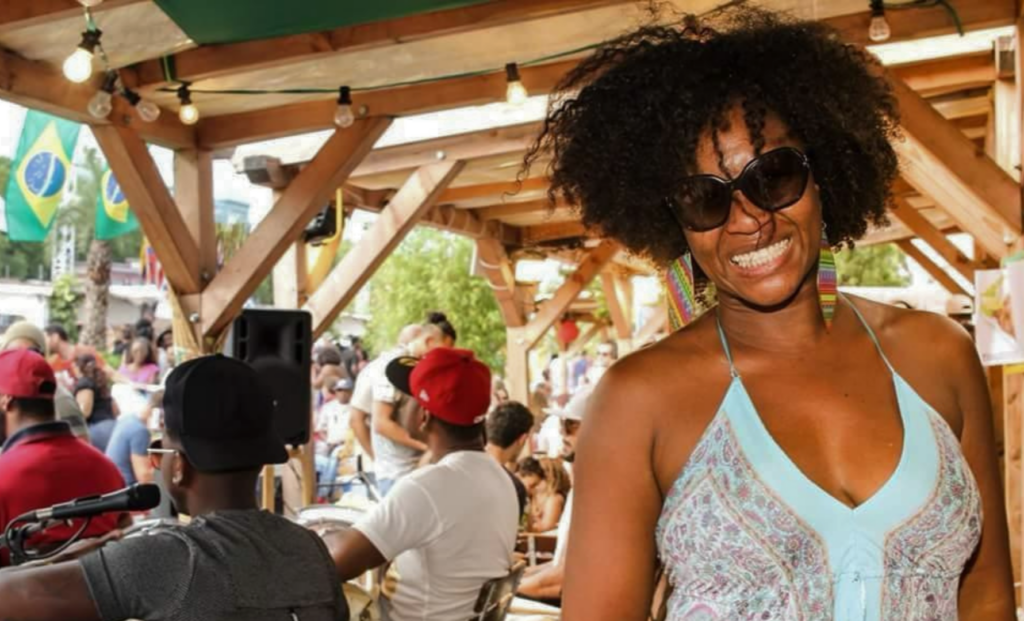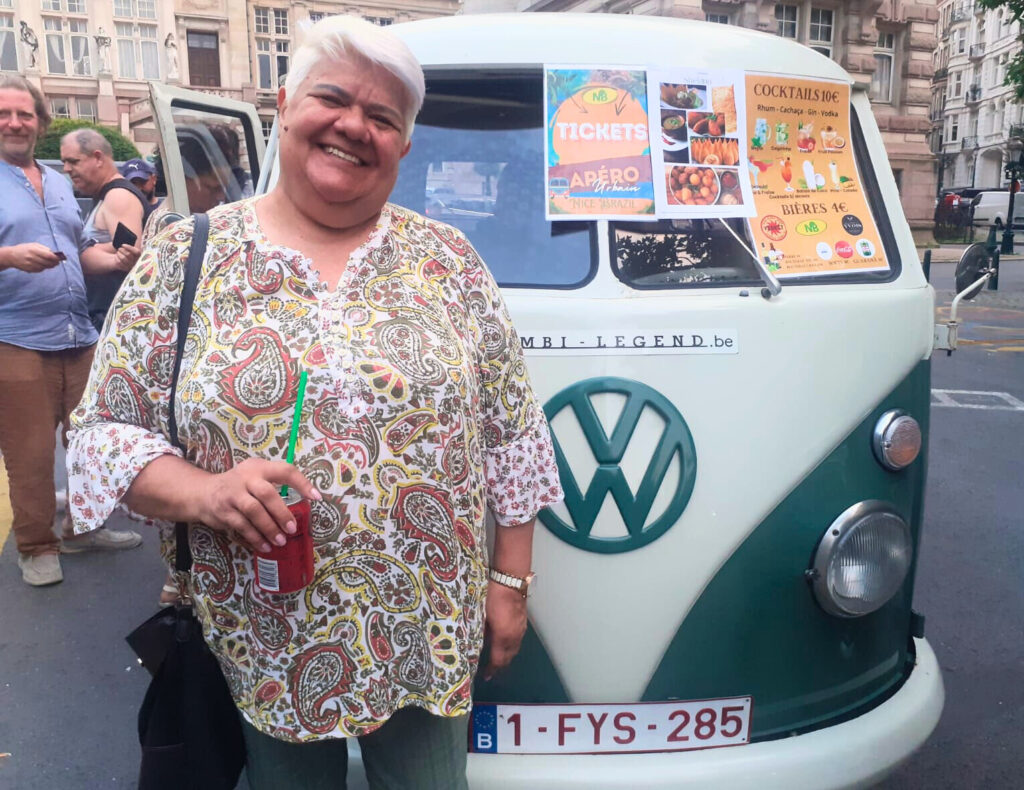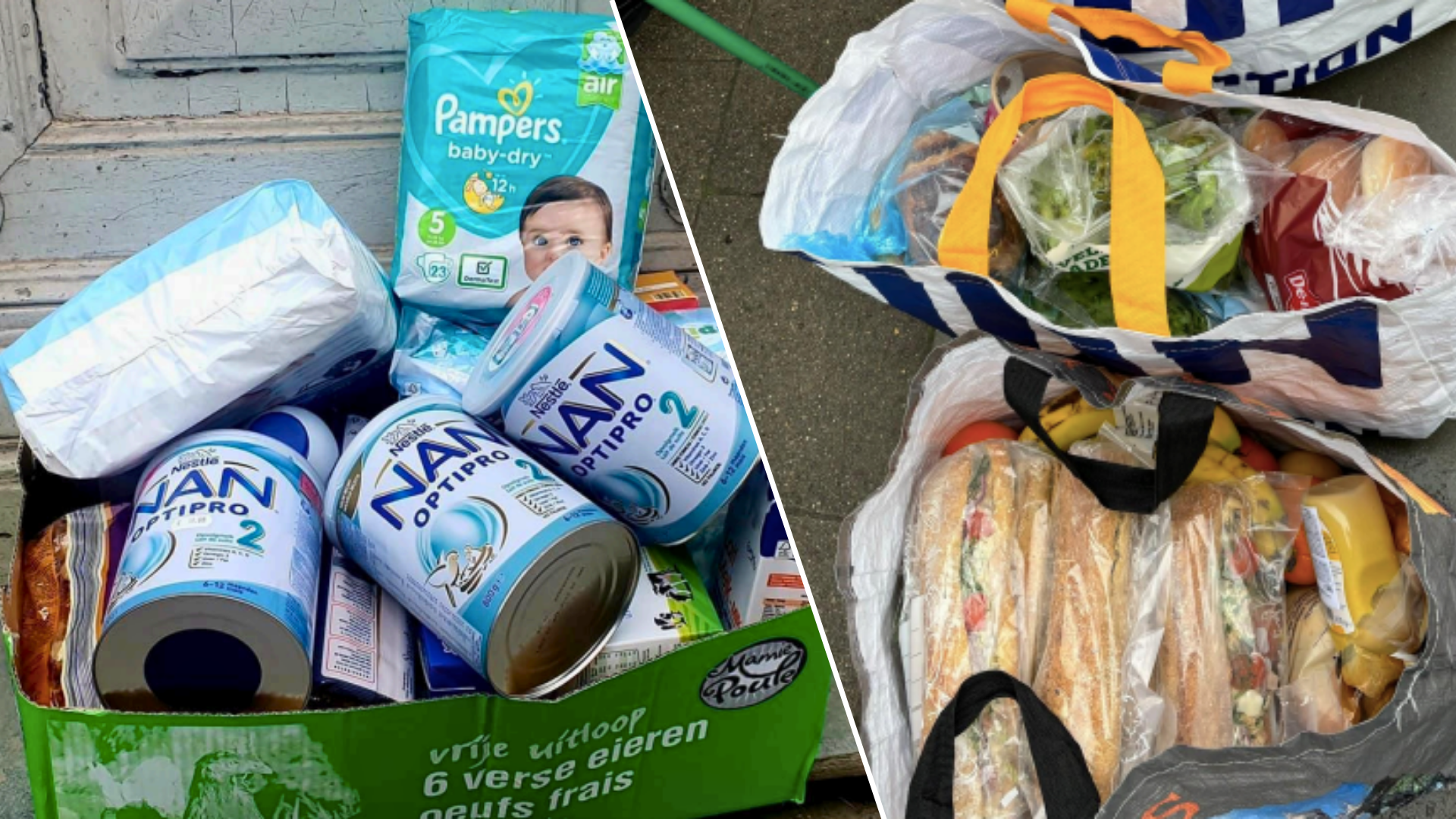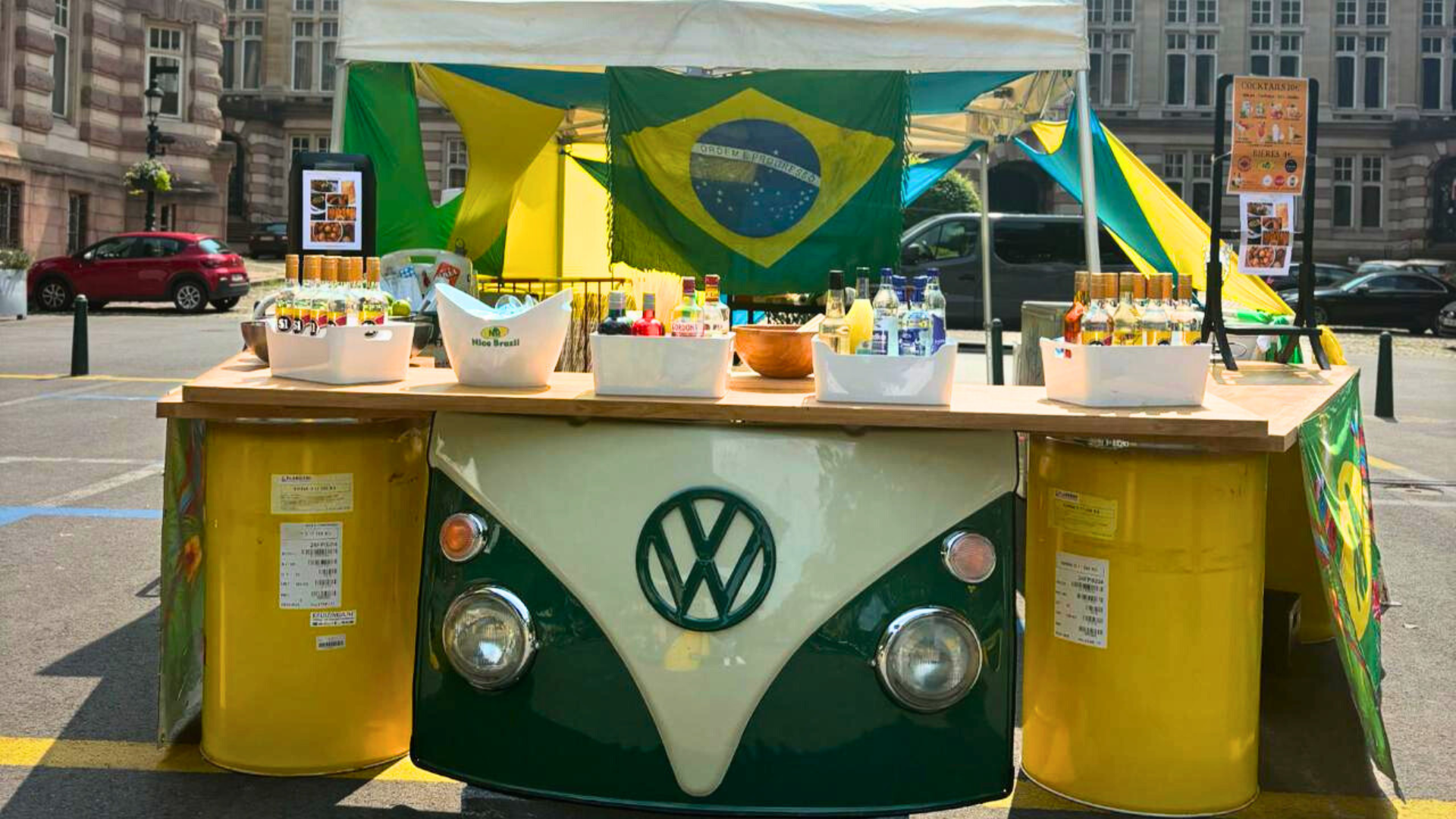"You should speak to my mother, she will love that. She's the one with the hair."
As spells of heavy Belgian rain threatened to take the last weeks of summer hostage, Saint-Gilles put on a strong front, with a Brazilian flair. To the sound of samba blasting through the speakers, locals gathered by the three large tents dotted around the square in front of the town hall, either queuing for churrasco, a cooling beverage, or for a bit of dancing.
In the centre, rectangular tables were arranged in rows, where people sat to enjoy their Brazilian delicacies while babbling in French, English or Portuguese. The small area in the corner of the square with beach chairs and colourful parasols topped off the South American atmosphere brought to the Brussels municipality that Friday evening.
"Her name is Nice. Well, that's how she's known around here," explained the young man, who was selling food and drink tokens from a dark green Volkswagen Combi.
Following his gaze, through a crowd of bodies, towards the drinks' tent, his mother was hard to miss: a light blue visor under her afro, long dangly blue earrings and bright blue capri trousers.
"What can I get you?" she asked.
The moment the words "journalist writing about the Brazilian community" were uttered, Nice broke into a wide smile. "Come on in! Someone get her a caipirinha!" she said, pulling me into the tent behind the makeshift bar.

Nice at a music event a few years ago.
Since she arrived in Belgium almost 24 years ago, Ivanice da Silva Rocha (43), known better as 'Nice Brazil', has added many experiences to her CV: from dancer to nursing student to business owner and, most recently, founder of a non-profit organisation dedicated to supporting the Brazilian community in Belgium: the Shekina project.
"Shekinah means God's glory. I understood that for me God is people, God is in people, and for me to do good [...] I need to help people. What better way is there for me to show my love for God?"
Falling in love with Brussels
Nice's desire to bring her community together is rooted in her early childhood in the Bairro da Paz favela in northern Brazil. "When you come from a favela, you come from a community," said Nice. "I studied, I gave dance classes, movement classes for the elderly, literacy classes, and I was part of a theatre group; I did many things in Bairro da Paz."
In her late teens, her motivation to "participate in everything" brought her to Europe, initially as a member of the band 'Beija Flor' and later as part of the dance and capoeira crew 'Brasil Tropical', which was based in Belgium.
Following the international tour of the crew, Nice decided to become the "owner of [her] story" and informed her boss she was going to stay in Belgium as a freelance dancer. "I had never heard the word 'freelancer' before, but I thought it sounded nice," Nice smiled.
While it wasn't always easy as a foreign national and as a black woman, Nice still felt that Belgium welcomed her "with open arms." Whenever she mentions that she is from Brazil, "a door opens and people smile because they have a beautiful image of Brazil, despite all the violence [there]." But she recognises that this is not the case for everyone.
Through her different business endeavours, she became a familiar face in the community – something which quickly became clear as her attempts to share her story were frequently interrupted by friendly greetings from other Brazilians and locals at the event.
Nice isn't the only big name in the Brazilian community: "Have you met Ritinha? She's famous," said Nice. Rita Balança (65), or 'Ritinha', as she is affectionately called, has a story that echoes the journey of many Brazilians in Belgium. Just before the turn of the century, she came to Brussels, with her ex-partner to join her brother-in-law, as a cleaner.
Despite a precarious start, it didn't take long for her to feel at home. "I fell in love [with Brussels]," she said. "Three months in, I signed up for a French course. I said 'I am going to stay here.'"

Ritinha at the Brazilian event in Saint-Gilles.
Within two years of her stay, Ritinha began to dip her toe into the world of events on offer in Brussels, particularly for the Brazilian and Portuguese communities. "I was a cleaner at this cocktail bar. I asked the owner if he would let me celebrate my birthday there, and I told him I'd bring some Brazilian friends," she said, flashing a grin. "Over 100 people came! Word got around, and in the end, it was packed!"
Ritinha became well-known among the community for her parties on boats, in a circus tent, and even at a racing track. But while the community is tight-knit during these events, this does not tend to mirror everyday life, as many Brazilians tend to stay within their smaller circles of friends, according to Ritinha.
However, this changes during tougher times: "Brazilians are very united in moments of mourning," affirmed Ritinha. Whenever someone passes away in Belgium, the community will always rally together to ensure there are enough funds to send the body back to Brazil, she explained.
While Nice agrees, she says there is also a side of the community that is open-minded and well-integrated into Brussels' international crowd; a side with which she became familiar during her time at the Canoa Quebrada, a Brazilian nightclub in the centre of Brussels. As a frequent visitor, over time, she developed a strong friendship with the owner. When he decided to return to Brazil, he handed the keys over to Nice.
Related News
- Stonemanor: The family-run business bringing Britain to Belgium
- How Brussels has changed since I arrived here on a rainy November holiday in 1989
- 'A love letter to the city': Who are Brussels' expats?
Despite being in her early 20s with no real entrepreneurial experience, Nice kept the business afloat for around 17 years. However, when she decided to step away from the club and sought new business ventures, including a supermarket and a hair salon, she saw that many of her fellow Brazilians faced a different reality to the one she had been living.
"I saw a new side to the community: people who were isolated and facing hardships," said Nice. For those in Belgium without the right documents, the situation is worse: "People have trouble obtaining documentation. Many are scared to ask for information or to sign up for classes, like language classes, because they are 'illegal'," she lamented.
"In the last few years, I have lost people who were very dear to me [...] because they felt alone, they didn't have a place to stay or didn't know who to ask for help," said Nice. "It's very important for them to know that even if they are 'illegal', there are places that can help."
The Covid-19 pandemic only made matters worse. "I saw so many people struggling," said Nice, who recounted that many around her were even going hungry. And so the Shekina Project was born; firstly unofficially with smaller social help projects such as delivering food to those in need, and more recently as an established NGO, which is slowly adding new services such as language classes and legal advice.

Food bags and boxes collected by the Shekina Project to support the community.
When it came to deciding on the non-profit's base in Brussels, Saint-Gilles quickly proved to be the right place: "I always saw Saint-Gilles as the [Belgian] capital of Brazil. There's a tunnel straight from Goiânia to here," explained Nice.
And while the non-profit was only officially established a few months ago, with the help of her partner, Nice's drive to grow her project is evident as she shares her (long) list of plans. "My boyfriend made me take out half of the plans. He said I was crazy and I can't achieve all of that," Nice recalls with a chuckle.
But regardless of how ambitious her extensive list is, her goals and convictions are clear. "We are going to build the Shekina project in Saint-Gilles; But we want to take the social help, events, and beauty of Brazil everywhere," Nice affirmed. "It isn't just about helping Brazilians, or just helping Brazilians in Saint-Gilles. It's about helping people."
And the key to helping others is in part building and connecting the community, just as she did at the event that evening – in between attempts to get me a caipirinha. "You can't do things alone," said Nice. "A community has power; it has an impact. A community changes history."
More information about the Shekina project can be found by contacting Nice at +32 468520842.

